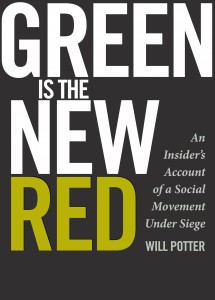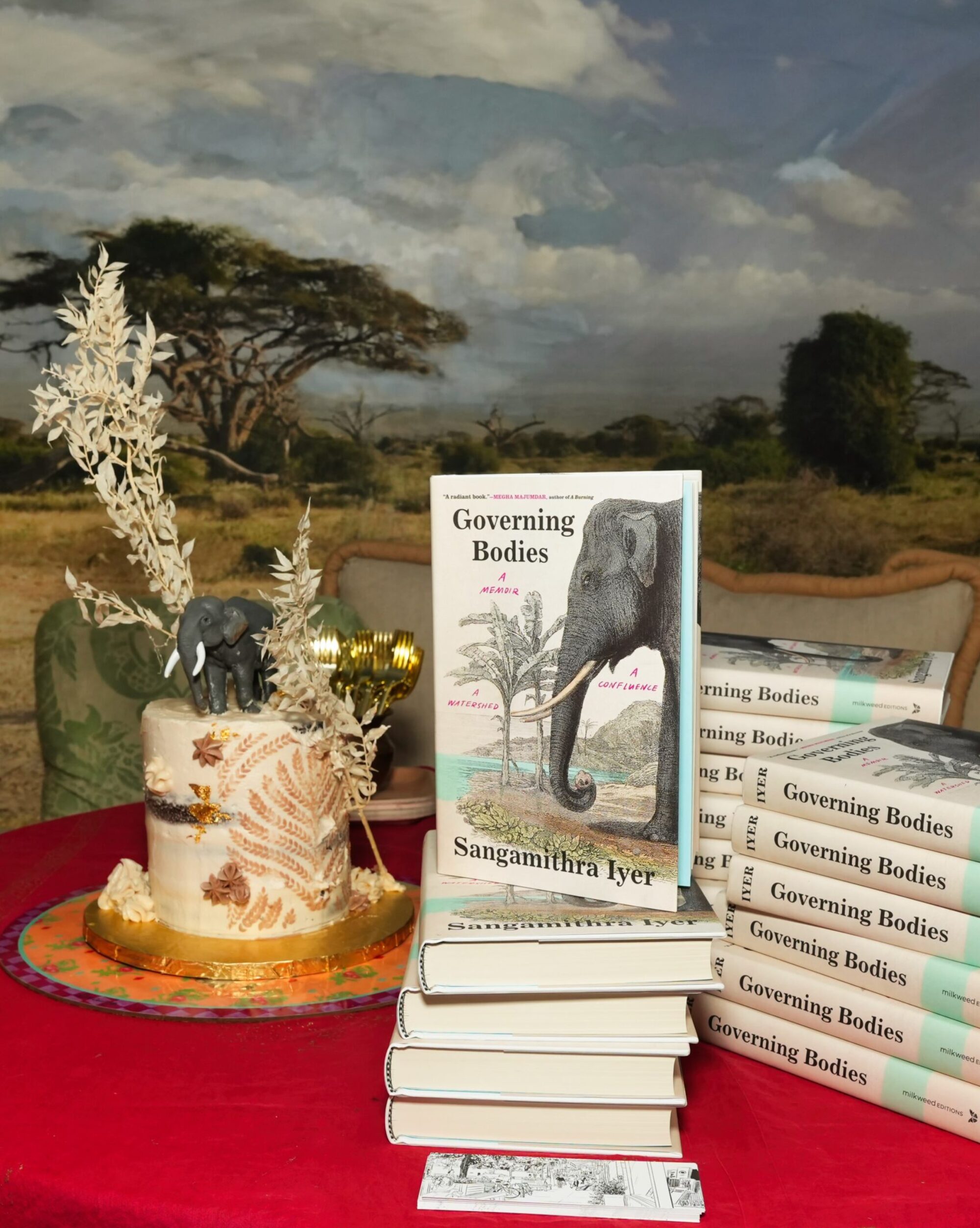 Congrats to Will Potter! His debut book, Green is the New Red: An Insider’s Account of a Social Movement Under Siege, has recently been nominated by Kirkus Reviews as one of the best nonfiction books of 2011. I was first introduced Potter’s work through articles he wrote for Satya Magazine on the “chilling effect” of the government crackdown on activists. Potter had been researching how animal and environmental activists became the FBI’s number one domestic terrorist threat. He had also provided testimony against the Animal Enterprise Terrorism Act. Since then, he has been reporting actively on what he calls the “Green Scare” on his blog, and last April, his book compiling years of research was released.
Congrats to Will Potter! His debut book, Green is the New Red: An Insider’s Account of a Social Movement Under Siege, has recently been nominated by Kirkus Reviews as one of the best nonfiction books of 2011. I was first introduced Potter’s work through articles he wrote for Satya Magazine on the “chilling effect” of the government crackdown on activists. Potter had been researching how animal and environmental activists became the FBI’s number one domestic terrorist threat. He had also provided testimony against the Animal Enterprise Terrorism Act. Since then, he has been reporting actively on what he calls the “Green Scare” on his blog, and last April, his book compiling years of research was released.
Green is the New Red is a thought-provoking and riveting read that examines several legal cases against activists. He gives particular attention to Operation Backfire, a series of arsons that took place in the late 1990s, as well as the activists arrested for their campaign to Stop Huntington Animal Cruelty (SHAC7). The book opens with the story of Daniel McGowan, who is also the main subject of recent film If a Tree Falls: A Story of the Earth Liberation Front.
Green is the New Red embodies one of my favorite forms of writing. It is part memoir, part history, part investigative journalism. Belonging to the school of “new journalism,” where an author acknowledges his role in the story, this book is a thrilling read for both its exhaustive research and the intimate nature of the telling. Potter is reporter, activist and friend. While I find the resulting combined perspective to be one of the book’s greatest strengths, balancing these selves while writing had its challenges:
“No matter how many times I might think I’ve escaped these compartmentalized roles of being either a friend or a journalist, of either being part of the story or telling it, I find that I’m still trying to walk the line between them.”
Potter has tracked several of these activists from their trial through prison, and for some, even after. He examines the set of forces that led to their arrest and sentencing and how the word “terrorism” has been applied to property destruction (even where there was no loss of life) and free speech activities.
Two of the activists he writes about, Andy Stepanian and Daniel McGowan, were sent to “Communication Management Units.” Alia Malek wrote an important piece about CMUs for The Nation earlier this year.
In such places, communication is severely restricted compared with the general prison population. CMU prisoners only get one 15 minutes phone call a week, and can’t have any physical contact with friends and family who come to visit.
Potter shares the difficulty prisoners face when trying to maintain their relationships. He describes Daniel and his wife Jenny Synan:
“He only has fifteen minutes with her, and if those minutes do not flow smoothly and end flawlessly he has to wait a week to remedy them. McGowan knows the burden this has placed on loved ones. He often asks friends to purchase small presents for Synan, sneak into their apartment, and then hide them between couch cushions or on the bookshelf, so that when he talks to her on the telephone, he can tell her where to find them and listen to her surprise.”
He writes about Andy Stepanian after he has been released:
“He has told me that since being released from the CMU, there will be moments where he’s standing in a post office or on a subway platform and smells this scent; he fades out of the moment and returns to prison, to moments in prison he would like to forget—someone stabbed, someone beaten, screams he had to ignore—and he will stay in that place until a noise or a stranger’s hand brings him back home.”
Potter candidly expresses his own concerns about writing this book:
“The most dangerous consequence of this terrorism rhetoric is fear, so does raising public awareness just make people more afraid?… As a journalist, I have felt a responsibility to raise awareness about legal and legislative issues that have largely gone unnoticed. As someone who cares deeply about these issues, I’ve wondered if I’m just doing the job of the government and corporations for them by spreading fear.”
But he later notes,“The best way to cut through the fog of fear is to shine a light directly on the source,” which is exactly what Green is the New Red does.
Released in the year of several global political uprisings and the Occupy Wall Street Movement, Green is the New Red is particularly relevant and insightful reading for all concerned citizens questioning corporate power. See more about this on Will Potter’s blog.

One Reply to “Green is the New Red: Cutting through the Fog of Fear”
Comments are closed.